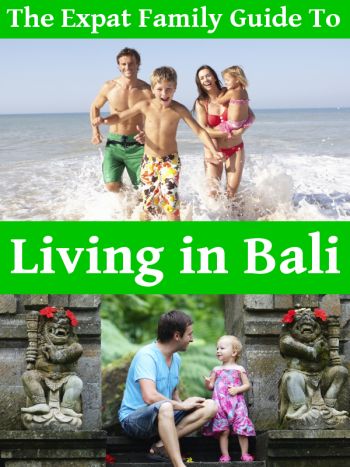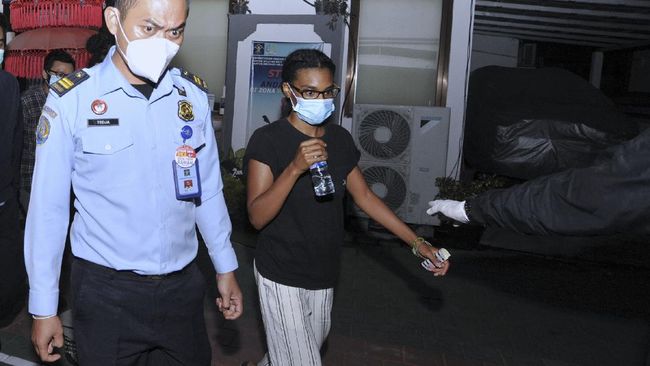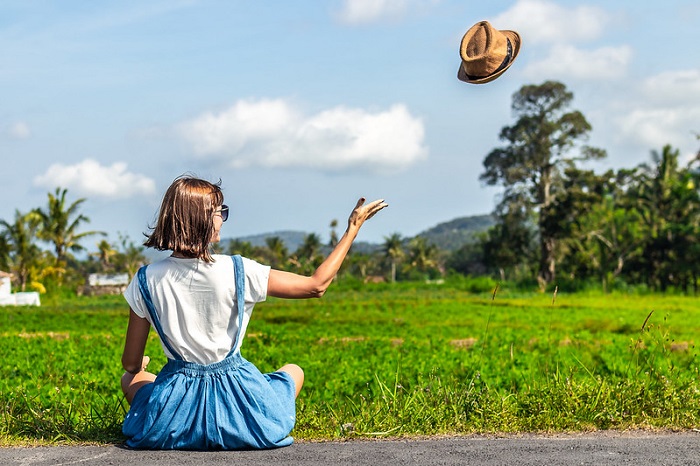As privileged migrants, do expats encounter racism?
Anne-Meike Fechter
Being an ‘expatriate’, in Indonesia as elsewhere, is a contested status. Carrying colonial undertones, it is not clear why some people should be called ‘expatriates’, while others are ‘migrants’. Expatriate status and identity often rest on privileges, such as moving freely and legally, benefiting from rewards that companies offer to those posted abroad, or a more comfortable lifestyle for others who move independently. Given that migrants are often thought of as people who experience racism, how does this matter for privileged migrants, such as self-described ‘expatriates’? Do they encounter or think of racism in the same way?
Whiteness and privilege
In the years following the Asian financial crisis in the late 1990s, the experiences of being an expatriate in Indonesia featured in many a blog and social media commentary – often articulated as what it meant to be a white foreigner. Standing out in a crowd, being stared at in the streets, and subject to remarks or name-calling such as ‘bule’, was a novel situation for many. People’s responses varied; some shrugged it off as understandable, and not necessarily unkind gestures. Others took offence, and found such behaviour sufficient grounds to denounce some Indonesians, or even Indonesian society, as racist. This was often accompanied by a refusal to recognise their privilege of whiteness, which so far in their lives had shielded them from such experiences. Neither did these make people reflect on their own practices, their dismissive comments and behaviour towards Indonesians, whom some routinely branded as ignorant or backward.

More recently, accounts of what it means to be an expatriate have become more diverse. It means recognising that not all self-defined expatriates are white, or indeed from the Global North. Talking about being an expatriate while black has shed light on different experiences of racism. Some have pointed to the excessive marketing of cosmetic skin-whitening treatments, and receiving dismissive comments from Indonesians who were themselves darker-skinned, as indication of how discrimination on the basis of skin colour is alive among Indonesian society.
As Ryan Haughton, a black Canadian, pointed out, it is not skin colour in itself that determines how people treat him. His nationality, socio-economic status and expertise mean that he gets attention as ‘someone who matters’, while his black African friend who is a domestic worker receives more blatant racial abuse, leading him to conclude that ‘what my friends call the perks of being bule, is in my case, the challenges of being “bule-adjacent”.’
What Haughton is pointing to is the principle of intersectionality. One’s experience of privilege, hierarchy or racial discrimination is not determined by one single factor, such as race or skin colour, but modified by nationality, ethnicity, expertise or gender.
Intersectionality
Nowhere has this become more apparent than in ‘digital-nomad-gate’. This unfolded in January of this year, triggered by a series of tweets by an US citizen, Kristen Gray. A self-defined black and gay American, her social media posts advised others on the enviable lifestyle she was enjoying in Bali with her girlfriend on a visitor permit, while building an online design business. Her blatant touting on just how luxurious her life had become, compared to her previous home in Los Angeles, was coupled with her insistence that people in Bali were ‘queer-friendly’ and welcoming of the LGBT community.
It was met with fury by Indonesian and foreign commentators. She was called on to check her privilege, to bear in mind how many Indonesians were non-privileged, and how unsafe many in the Indonesian LGBT communities feel, as well as those discriminated against based on their skin colour and ethnicity, such as students from West Papua. Others accused her detractors of being racist, attributing the online abuse she received to the fact that she was black – a move then called as ‘playing the race card’ in return. Eventually, Balinese immigration authorities revoked her stay permit and deported her in due course, on the basis of flouting immigration and pandemic-related travel rules.

Much less headline-grabbing, but more pervasive, are practices of racism in institutions in Indonesia that bring together people from across the world. A striking case often hidden from public view, are international schools. In her book, Growing up in Transit Danau Tanu gives a thorough account of how race and racism play out in this setting. Tanu documents how race, ethnicity and nationality intersect to group students, or divide them, into cliques labelled ‘white’ or ‘Korean’, with ‘white’ not actually referring to skin colour. Whatever feature they are based on, hierarchies with racial inferences structure social life at school and beyond. This may be surprising, as international schools so often present themselves as, if not ‘colour-blind’, then championing the diversity of students from a wide range of national and ethnic backgrounds. This welcoming rhetoric is undermined by the fact that their attraction rests in large part on their reputation as a gateway to privileged education institutions, often in the Global North. In this setting the attribute of ‘local’ – as in, Indonesian language or culture – is sometimes considered less worthy, whilst the implicit hierarchies of race and ethnicity that shape social groups and school curricula, mean that ‘white’ privilege is bolstered.
What does this mean for the link between ‘expatriates’ or privileged migrants, race and racism? First, receiving stares and commentary on the basis of one’s skin colour can be disturbing for migrants who are white. This may lead them to consider some Indonesians as racist, but not necessarily recognise their taken-for-granted privilege of not being stared at, which their whiteness often provides them with.
Experiences of racism are not straightforwardly based on skin colour – migrants in Indonesia can be very differently positioned depending on their job or socio-economic status, which can temper, or exacerbate, racist behaviour they encounter. Finally, race and racism do not only matter among individuals: they are evident in institutions such as international schools, who consistently value some forms of diversity over others, cementing hierarchies and privilege within and beyond the school gates.
Anne-Meike Fechter (a.fechter@sussex.ac.uk) is Reader in Social Anthropology at the University of Sussex, and author of Transnational Lives: Expatriates in Indonesia.
